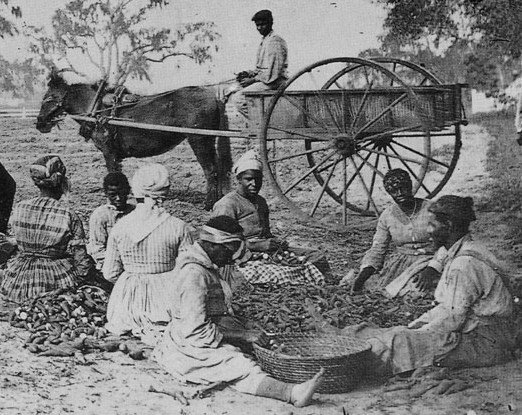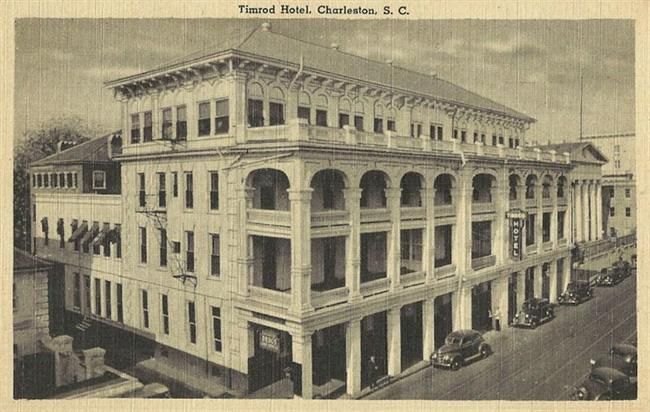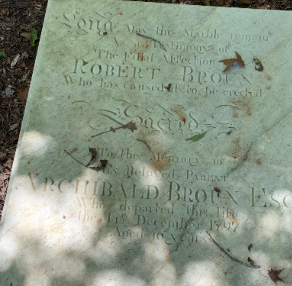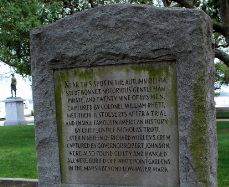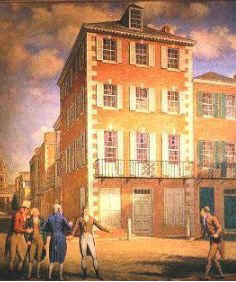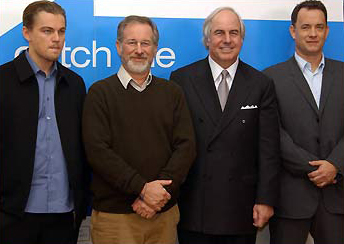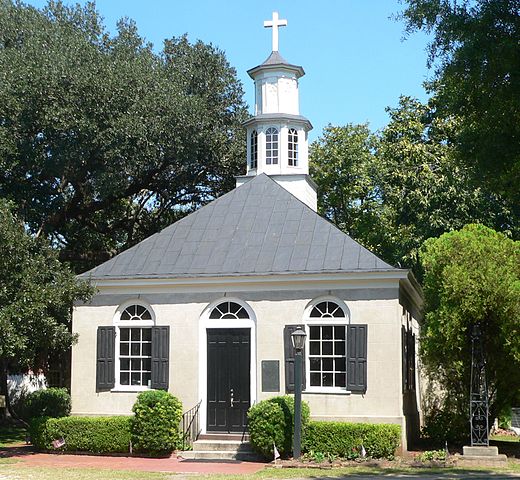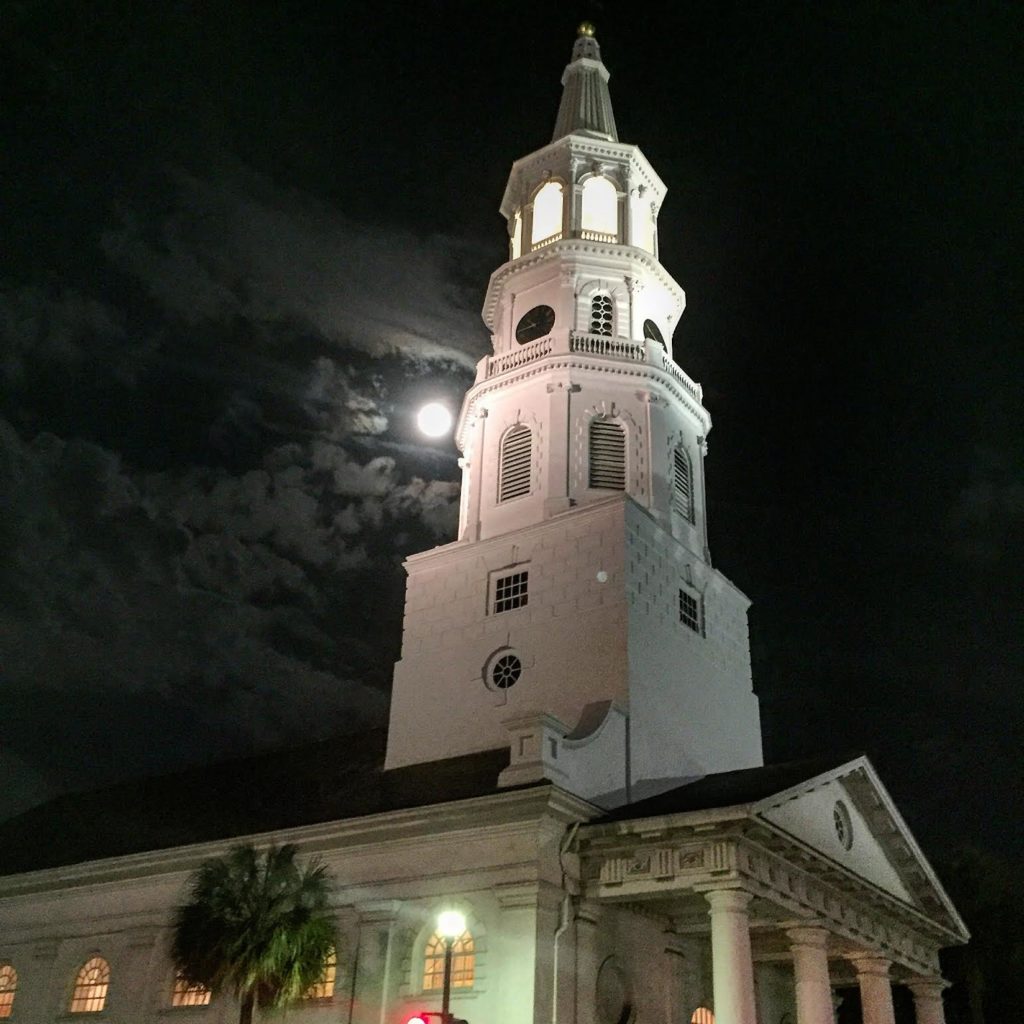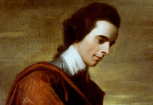
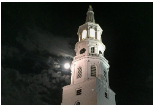
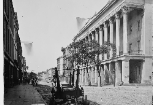

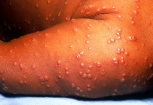

JANUARY
January 1
1766 -- As Charlestonians became more alarmed at the ever-increasing ratio of the enslaved vs. white population in Charles Town, the Assembly imposed heavy import duties on all slaves brought into the colony.
1787 -- Arthur Middleton, signer of the Declaration of Independence, died.
1807 -- The foreign slave trade ended per Federal law, at least legally if not actually in practice.
1838 -- Osceola arrived as a prisoner at Fort Moultrie.
1863 -- One of the greatest South Carolina scientists you've probably never heard of, Arthur T. Wayne, was born.
1910 -- A reporter for the News & Courier wrote: “Traveling men usually remember the places they visit by the kinds of hotels at which they stopped. In Charleston there is one hotel that the consensus of opinion has named ‘The Best.’ This is the Charleston Hotel … a part of [the city’s] traditions.”
January 3
1918 -- Mary A. Storfer, the new proprietress of the Timrod Inn, announced in the News and Courier: "Many people have told us that the Timrod Inn fills a distinct place in the community, and indications are that our rooms will be in demand from the beginning. We shall open Monday morning and guests will be given desirable accommodations without delay."
January 5
1860-- The merchant steamer Star of the West left New York’s harbor. Most sources say that while the Star left its berth with only supplies aboard, it shortly thereafter picked up more than 200 recruits from tugboats before heading to Fort Sumter.
Simultaneously, Maj. Anderson telegraphed Washington saying that while South Carolina was erecting batteries, he felt safe for the time being at Fort Sumter.
January 6
1704 -- Ruth Brewton, daughter of Col. Miles and Mary Brewton, future wife of S.C. Commissary Gen. William Pinckney, and mother of Col. Charles Pinckney, was born.
January 8
1732 -- Thomas Whitmarsh, who had once worked for Benjamin Franklin in Philadelphia, published the first edition of the South Carolina Gazette.
1741 -- Feeling that the Great Conflagration of 1740 was a sign of God's displeasure of Charles Town's sinful society, Anglican evangelist George Whitfield wrote in an article for the Gazette saying that even the colony's clergy did not follow in "the Footsteps of our True Sheperd." He was arrested and upon his release returned to England.
January 9
1752 -- Archibald Broun, a Patriot hero of the American Revolution, was born at Brounsfield Plantation, north of Charles Town. His gravesite is included in Charleston Raconteurs' Day on the Cooper River Tour.
1760 -- Gov. Lyttleton and his soldiers marched down Broad Street, while cannons fired to welcome the troops back to Charleston after concluding a peace treaty with the Cherokees near Keowee. The treaty was hastily made as a raging smallpox epidemic was ravaging the tribe, and the soldiers feared catching it. Several days after their return, the city's worst epidemic to date of smallpox broke out within the colony.
1861 -- Shortly after midnight, a merchant ship, Star of the West, arrived outside Charleston Harbor.
At Fort Sumter, Maj. Robert Anderson had to make a historic decision. Should he defend the Star or continue to do nothing to provoke the Carolinians, as his orders from Washington had said? He prepared to cover the ship, his men posted at the ready. Then he waited.
At dawn, what some historicans say was the "real" first shot of the Civil War was fired by Citadel Cadets from Morris Island at the Star.
January 10
1815 -- American Patriot Rebecca Brewton Motte died.
1901 -- The Navy Board recommended Charleston as the site of its new Navy Base.
1947 -- Union Station was destroyed in a fire that started in an oil stove by the ground-floor newsstand that “just flared up.”
January 11
1747 -- George Lucas died in French captivity during the War of Austrian Succession (aka War of Jenkins Ear). He left his 17-year-old daughter, Eliza, to manage his Wappoo, Garden Hill and Combahee plantations.
1777 -- William Tennent III addressed the state's assembly, "praying for a Constitutional Recognition of the Equal Rights of all Religious Denominations."
January 12
1723 -- Sir William Rhett, a colonial leader and captain who captured the notorious Stede Bonnet and other pirates, died.
1760 -- A punishing smallpox epidemic broke out in Charleston.
1773 -- The forerunner of The Charleston Museum was founded as one of the first, and perhaps even the first depending on how one defines it, public museum in the colonies.
January 13
1947 -- A story in the Evening Post recorded that fate had “taken a hand in the problem of providing Charleston with the type of railway passenger facilities a community of this size and prospects is entitled to” as it reported on a fire that destroyed Union Station.
January 15
1778 -- One of the most destructive fires in Charleston's history broke out after dark near the intersection of Queen and Union (now State) streets.
1929 -- Joseph "Big Joe" Gawrych was born in North Haven, CT. According to his obituary in the Post and Courier, after his Navy service he and his Charleston bride settled in Mt. Pleasant, where he coached 11- and 12-year-old boys' baseball for more than 45 years. The Joe Gawrych Baseball Park in Mt. Pleasant is named in his honor. He also planted gardenias on Charlotte Street in the 1970s, which his obit said have been propagated across the Southeast.
January 17
1767 -- Mary-Anne Schad, the wife of a plantation overseer, gave birth to her second child, a daughter. Planters believed that having a married overseer on the property would keep an overseer more settled and responsible. (Source: South Carolina Women, p. 66)
1820 -- John and Lavinia Fisher’s appeal on charges of highway robbery was unsuccessful and they were sentenced to be hanged Feb. 4.
January 18
1735 -- Planter Charles Lowndes advertised his 1,000-acre Goose Creek plantation for sale in the South Carolina Gazette. (Source: Goose Creek, A Definitive History, Vol. 1)
January 19
1738 -- Captain Morris offered 100 acres in Goose Creek free for experimentation with growing silk. He also requested that the Commons House of Assembly appeal to Parliament to reduce the duty on silk. (Source: Goose Creek, A Definitive History, Vol. 1, p. 99)
1903 -- S.C. Lt. Gov. James H. Tillman, Ben Tillman's nephew, fatally shot Narciso Gener Gonzales, editor of The (Columbia) State newspaper, during a confrontation on the S.C. State House steps.
January 20
1649 -- King Charles I of England went on trial, accused by Oliver Cromwell and his Puritan allies, for high treason. The Carolina colony had been named in his honor.
1837 -- Sarah and Angelina Grimke begin the first of a six-week lecture series about slavery in New York Baptist churches.
1994 -- Shannon Faulkner became the first woman to attend classes at The Citadel. She joined the cadet corps in August 1995, but dropped out about a week later, citing isolation and stress from the legal proceedings and her reception at the college.
January 24
1735 -- A troupe of traveling actors working with local musicians staged the colony's first theatrical season in the "long room" of Shepheard's Tavern, located on the northeast corner of Broad and Church streets. The season opener was The Orphan, or the Unhappy Marriage and cost 40 shillings for a ticket.
1945 -- The Christ Church (Mt. Pleasant) flagon was returned to the Rev. Edmund Coe by Bonnie McArty, whose uncle Frank Blaine, a Union infantryman, stole it in the aftermath of the Civil War. (Source: Stolen Charleston: The Spoils of War, p. 11.)
January 25
1739 -- The South Carolina Gazette advertised the sale of James Moore's "very good brick two-story House" at his Goose Creek plantation. (Source: Goose Creek: A Definitive History, Vol. 1, p. 97)
1902 -- Linnelle Hall (m. Griggs) was born in Marlboro County.
January 27
1785 -- According to the journal of the House of Representatives, two petitions were presented, one of which called for the establishment of a school (which would later become the College of Charleston) at Charleston and the other at Winnsborough. The petitions were sent to committee for consideration. (Source: A History of the College of Charleston, p. 18.)
2003 -- Leonardo DiCaprio, Steven Spielberg, Charleston resident Frank Abagnale and Tom Hanks attend a press conference in London before the UK premier of the movie, "Catch Me if You Can."
January 28
1861 -- The S.C. General Assembly approved Barnwell Rhett Jr.'s proposed design for a state flag featuring a blue background with a white palmetto tree centered and a white crescent with horns pointing upward in the left-hand corner,
January 29
1813 -- A man named Pierre Mathesau was hanged in front of the Old City Jail on Magazine Street. (Source: Abode of Misery, p. 15.)
January 30
1649 -- Charles I was beheaded as Oliver Cromwell and his Puritan Party assumed rule over England.
1662 -- Newly restored to the British throne, Charles II had the body of Oliver Cromwell exhumed on the 12th anniversary of his father's execution and beheaded the corpse.
1770 -- Lt. Gov. William Bull recommended to the General Assembly the establishment of a provincial college, which became what we know today as the College of Charleston.
1838 -- Osceola died and was buried at Fort Moultrie.
1862 -- Henry Michael Lofton, of the 10th Regiment, took time off from the Civil War to marry Susan Ann Morrison at Second Presbyterian Church. (Source: Home in the Village, p. 76)
1866 -- The melted fragments of St. Michael's bells were shipped back to England to be recast after their destruction during the Civil War.
January 31
1861 -- In the wake of Seccession, S.C. Attorney General Issac W. Hayne, who was serving Gov. Francis W. Pickens as an envoy to Washington, wrote to U.S. President Buchanan warning him that the U.S. possession and occupation of Fort Sumter "if continued long enough, must lead to a collision." (Source: Confederate South Carolina, p. 19-20)
